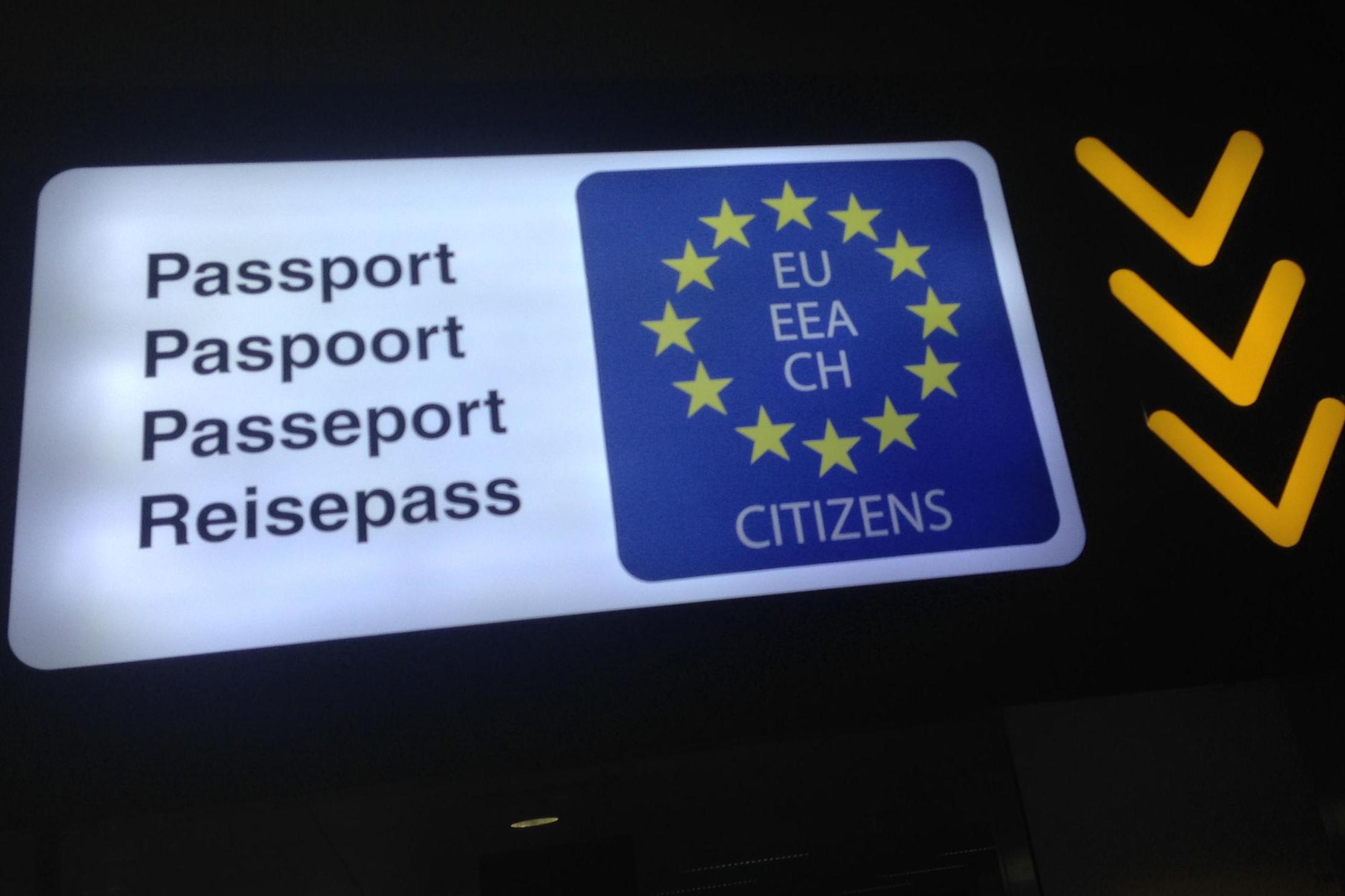Schengen: Europe's border guards should be 'well-balanced, friendly, factual and polite' according to the handbook
How frontier officials are taught to be nice to 'tourists, businessmen, students, etc'

Your support helps us to tell the story
From reproductive rights to climate change to Big Tech, The Independent is on the ground when the story is developing. Whether it's investigating the financials of Elon Musk's pro-Trump PAC or producing our latest documentary, 'The A Word', which shines a light on the American women fighting for reproductive rights, we know how important it is to parse out the facts from the messaging.
At such a critical moment in US history, we need reporters on the ground. Your donation allows us to keep sending journalists to speak to both sides of the story.
The Independent is trusted by Americans across the entire political spectrum. And unlike many other quality news outlets, we choose not to lock Americans out of our reporting and analysis with paywalls. We believe quality journalism should be available to everyone, paid for by those who can afford it.
Your support makes all the difference.Schengen, as you know, is a village perched prettily beside the Moselle in south-east Luxembourg, where the French and German frontiers converge on the river.
As a symbol of unity, it was the ideal place for Belgium, the Netherlands, France, Germany and Luxembourg to sign a treaty in 1985 on the free movement of people and goods within Europe. Today, the Schengen Area binds 22 European Union nations, plus Iceland, Norway, Switzerland and plucky Liechtenstein.
I first visited the village in 1990 (yes, I was very young, thanks), as the Schengen Convention was signed: the treaty that abolished internal border checks.
I cycled along to the frontier post to meet the soon-to-be-ex-border guards, who welcomed me into their den where they kept the most cursory eye on the flow of traffic across the bridge.
It’s difficult to measure the efficiency of anyone involved in deterrence, such as border officials, but they didn’t give the impression of achieving superlative levels of productivity. Nevertheless, I’d like to think some of those who lost their posts found gainful employment helping to create the Schengen Agreement’s own guidebook to the bloc’s external borders.
The Europe-without-frontiers project comes with a “how to” manual: the Practical Handbook for Border Guards. Its mission: to ensure “the smooth crossing of the border by persons who represent the great majority of travellers (e.g., tourists, businessmen, students etc.),” while at the same time “always being vigilant in order to detect persons posing a risk”.
And it proceeds to explain how to do just that. So next time you travel by train, boat or plane to Schengen (whether the small village or the Europe-wide area), assess how well the frontier officials comply.
“Do not interrogate the traveller as a potential criminal or illegal immigrant,” the book instructs. “All the questions should be well-balanced and asked in a friendly way.”
And if the traveller asks questions back, they “should not be considered as intrusive, and should be answered in a factual and polite manner”.
Well-balanced, friendly, factual and polite: at your next frontier encounter, award one point for each virtue.
But border guards must do more than adopt the demeanour of a country vicar. They are supposed to identify villains. And here the Practical Handbook strays towards the blindingly obvious.
“When you take the travel document, always have a look at the face of the traveller,” it instructs, helpfully. “Try to remember as much as possible of the noticeable features of the traveller’s face; compare the features of the traveller with the photo.” After these Sherlockian suggestions, it adds: “This could help to eliminate impostors.”
Officials are told that impostors and other undesirables may give away tell-tale signs: “Observe the behaviour and reaction of the traveller (e.g. nervousness, an aggressive attitude, excessive willingness to cooperate).”#
Beware of false positives, though; nerves or aggression could simply be as a result of waiting anxiously as time ticks away, while an “excessive willingness to cooperate” might result from less than well-balanced and friendly previous encounters with border guards.
The book reveals not all travellers are equal, wth some enjoying a lighter touch. Top of the tree are “heads of State and members of their delegations,” who escape all frontier formalities.
“Members of international organisations” carrying out their duties can expect “preferential treatment during border checks”. At airports, air crews take priority over mere passengers. And “regular cross-border commuters who are well known to the border guards owing to their frequent crossing of the border” can expect only the occasional spot check.
But the rest of us, as I reported on Monday, face queues of up to four hours to pass border controls.
Happily, I have a cunning plan to stop us Brits being constant Checkpoint Charlies. Even though the UK is heading for Brexit, there is no reason why we should not join the Schengen Area and enjoy frontier-free travel that will enable us to reach Schengen sehr schnell.
Perhaps we could have a referendum about it.
Click here to find hotes in Schengen
Join our commenting forum
Join thought-provoking conversations, follow other Independent readers and see their replies
Comments